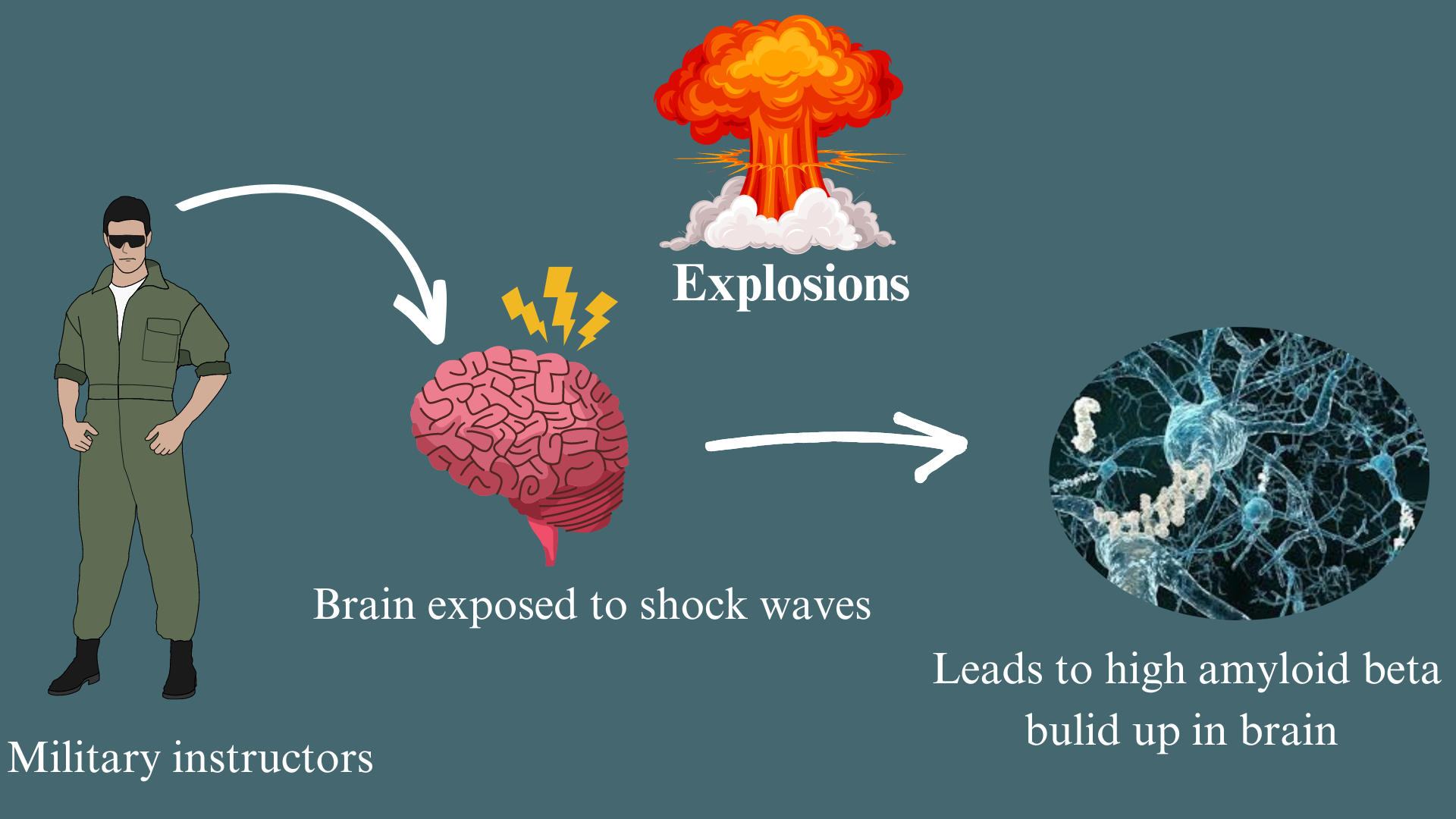
New research has found that the brains of young and healthy military personnel who are exposed to frequent explosions accumulate abnormal amounts of amyloid-beta proteins, increasing their risk of developing Alzheimer’s early.
The findings were published on 9 May in Radiology, a research journal brought out by the Radiological Society of North America.
“Amyloid-beta is a molecule not normally found in the brains of young [people], and its accumulation in the brain is proposed to be an early event in the pathogenesis of Alzheimer’s disease, the most common type of dementia worldwide,” said Dr Carlos Leiva-Salinas, associate professor of radiology at the University of Missouri School of Medicine in Columbia, Missouri, in a statement.
Numerous studies have shown that apart from several other factors, head injuries also heighten a person’s risk of developing dementia and Alzheimer’s. However, the current research is the first to explore a link between repeated traumatic head injuries and the risk of developing the condition that causes progressive loss of memory and cognition.
When a sporting hit goes haywire
Speaking with Happiest Health, Dr Leiva-Salinas said, “We felt the relationship between brain trauma and the development of chronic traumatic encephalopathy is not fully understood, especially what happens in the acute phase, just weeks after the traumatic events.”
Chronic traumatic encephalopathy is a neurodegenerative brain disease caused by repetitive head injuries. It is commonly seen in athletes who participate in contact sports like football, hockey and boxing.
Studies explain that when the head takes such blows, it disrupts and breaks down communication among brain neurons. Also, several brain chemicals are released that could damage the brain.
The intensity of the impact determines the degree of symptoms: Confusion, headache, dizziness, or fatigue could be the outcome of mild concussions, whereas mood changes, loss of consciousness, cognitive difficulties, and developing neurological conditions result from severe injuries.
In this study, the researchers found that exposure to blasts could cause similar repetitive traumatic brain injuries.
Read more: Remarkable’ Alzheimer’s drug reduces cognitive decline, study shows
Read more: Study locates neurons that kickstart Alzheimer’s
Military subjects scanned
The researchers chose nine young and healthy instructors from the US military base for their study. All of them were in their early 30s with no history of concussions or prior exposure to blasts. In addition, nine healthy civilians participated in the control group for the study.
With the help of PET scan and analysis software, the researchers evaluated six brain regions related to Alzheimer’s’ in all individuals, looking for abnormal accumulation of amyloid proteins in the brains.
They evaluated the military personnel’s brain scans – once before the study commenced and again five months after exposure to the blasts. The researchers also scanned the brains of a control group of civilians at these intervals.
The data of the number of blast exposures were logged for each personnel.
The researchers found that six of the nine instructors exposed to explosions had abnormal amyloid build-up in the brain. In one, the accumulation was in one part of the brain, while two regions were affected in two other. Whereas three participants had three or more areas with abnormal accumulations of amyloid beta proteins. No such accumulation was found in the healthy control group.
Dr Leiva-Salinas says the exact reasons for this are unclear; However, the shockwaves due to the explosions could be causing a violent brain shake, leading to repetitive traumatic brain injury.
“Our study is the first to prove amyloid accumulation in the brain very early after episodes of mild traumatic brain injury,” he says. However, an investigation is needed into the specific relevance of the observed early amyloid accumulation in the brain of these people; and also whether the amyloid will persist over the years or spontaneously clear.
Dr Leiva-Salinas adds, “Further research needs to be done to establish the relationship between the frequency and the severity of traumatic brain injury and the degree of amyloid changes in the brain, the natural course of the observed accumulation, and other potential biologic risk factors for amyloid plaque deposition and the development of cognitive decline.”

















